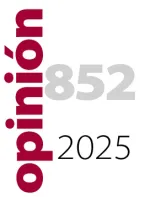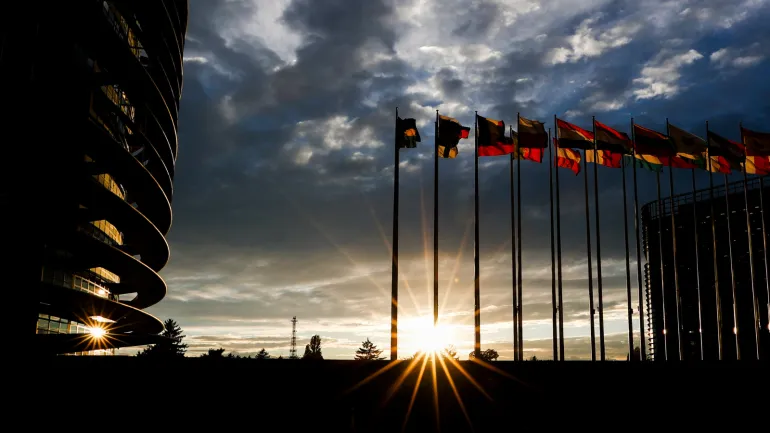Reforming the International Order: An Opportunity for Europe


The image of Xi Jinping flanked by Vladimir Putin and Kim Jong Un during Beijing’s September military parade has circled the globe as a symbol of a new Cold War. Yet alternatives to this emerging bipolar order still exist. The European Union can play a decisive role if it assumes proactive leadership in shaping a renewed form of multilateralism that reflects today’s multipolar realities. Confrontation between blocs is not inevitable, but to avoid it, Europe must look beyond the West and build partnerships with the Global South.
Certain images capture a historical moment, distilling the spirit of an era and etching themselves into collective memory. The military parade in Beijing marking the 80th anniversary of the end of World War II in Asia, in September 2025, offered one such scene: Xi Jinping, dressed in a rigorous Mao suit, leading a procession of twenty world leaders, with Vladimir Putin and Kim Jong Un at his side. That photograph is already a symbol. The question now is what narrative will accompany it in future history books.
A first reading suggests that China is positioning itself as the leader of an emerging anti-Western alliance. At the same time, Donald Trump’s return to the White House is accelerating the erosion of the international order, making unilateralism and disruption the cornerstones of American foreign policy. Thus, as the United States distances itself from the very system it once built, China is able to present itself as guarantor of stability, cooperation, and development. In a world where Washington is seen as the primary source of instability, Beijing offers many governments—authoritarian or not—a more predictable and attractive alternative.
What is at stake in the coming decades, then, goes beyond mere military or economic dominance. It concerns the very fabric of the international order. If the logic of blocs prevails, the world may once again oscillate, much like in the latter half of the twentieth century, between hostile coexistence and total war. For now, history appears to be moving in that direction. On its 80th anniversary, the United Nations finds itself in a state of near paralysis, and the entire web of institutions and norms surrounding it hangs by a thread.
Yet most countries do not want to be forced to choose between the United States and China. In this context, Europe—occupying a privileged place within the twentieth-century international architecture—must shoulder its responsibility. It is not enough to vainly defend the so-called “rules-based order.” The European Union must go further by proposing a far-reaching reform of the current system, a reimagined multilateralism capable of managing a truly multipolar world. Refusing to reform global institutions and make them more inclusive and representative does not protect the system; it merely condemns multilateralism to a slow and painful death by neglect.
To succeed, Europe must forge broad coalitions that extend beyond the Western world. Framing the debate in binary terms—the G7 versus the BRICS+, or the West against the rest—would doom any reform effort from the start. This framing is not only simplistic but also counterproductive. If Europe and its allies retreat into a defensive posture, the BRICS+ will have no choice but to press ahead with a parallel project. Conversely, if Europe champions inclusive leadership and the established order begins to integrate many of the Global South’s legitimate demands, the appeal of groupings like the BRICS+ will inevitably decline, undermining any supposed anti-Western alliance.
Brazil and South Africa, both founding members of the organization, are also strong advocates of multilateralism and would quickly rally behind such an agenda. India—whose absence from Beijing did not go unnoticed—would likely do the same, seeking to preserve its strategic autonomy and policy of multi-alignment. China, for its part, occupies an ambiguous position: despite its clear revisionist ambitions, it has been one of the main beneficiaries of the liberal order and remains reluctant to take risks that could jeopardize its rise.
Russia plays a very different role. Of the five founding members of the BRICS+, it is the only one that is overrepresented in the current multilateral architecture. As such, Putin’s regime likely has more to gain—or less to lose—from a world of anarchy, where power prevails, than from a more inclusive multilateralism adjusted to today’s balance of power.
Beyond the BRICS+, such a reformist agenda would find considerable support. Much of the international community—including large parts of the Global South—does not wish to live in a world defined by bipolar confrontation or total anarchy. In regions like Latin America, Africa, and Southeast Asia, support for multilateralism remains strong, even if Europe has yet to fully internalize or leverage it. The case for multilateralism is therefore not a naive European dream; it reflects a widely shared aspiration across the globe.
Yet, for these efforts to take root, rebuilding trust between the EU and the Global South will be essential. Both sides must move beyond historical grievances and mutual accusations of double standards. While the EU feels that Russia’s invasion of Ukraine has gone largely unpunished in the Global South, many in those regions see instead the deep inconsistency of a West that invokes international rules when convenient and ignores or violates them when it is not. Iraq, Libya, or, today, Gaza, stand as vivid reminders of this. Indeed, if those who designed the liberal order do not defend it consistently, why should the Global South—long marginalized in its making—be expected to do so?
In this environment, Europe should not limit itself to a conservative defense of the status quo or the nostalgic “rules-based order.” It now has both the opportunity and the responsibility to build bridges with the Global South and to lead broad coalitions advocating for the deep reform of multilateral governance. Doing so would not only strengthen Europe’s global standing but also expose the internal contradictions within the BRICS+.
In the long term, only a profound transformation of multilateralism will allow the world to manage China’s rise and the full arrival of multipolarity. Failing to move in this direction would leave us at the mercy of raw power and an increasingly fragmented world. Structural forces indeed push us toward that outcome—but that is precisely why action is so urgent.
With Donald Trump back in the White House, progress will be difficult. Nevertheless, Europe must already begin to shape these global alliances, deepening bilateral ties and advancing plurilateral frameworks where broader consensus is not yet feasible. Initiatives with India, Mercosur, the African Union, or members of the Comprehensive and Progressive Agreement for Trans-Pacific Partnership (CPTPP) point in the right direction. They should, however, be prioritized and placed at the center of the EU’s external action.
After all, the European Union is itself both the product and the embodiment of multilateralism. Its identity, and its future, are inseparably bound to the fate of this system.
Keywords: EU, international order, Global South, multilateralism, multipolar, West, China, United States, Gaza, BRICS
All the publications express the opinions of their individual authors and do not necessarily reflect the views of CIDOB or its donors
Image: © European Union 2025 - Source : EP
E-ISSN 2014-0843